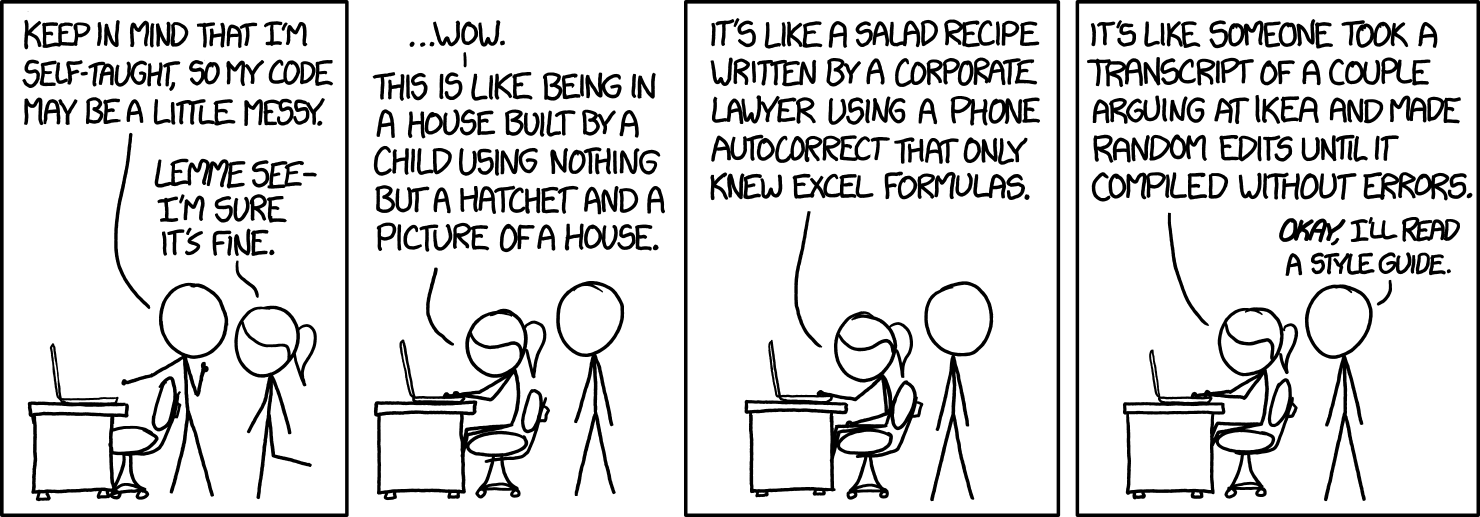Coding Styles
11 Feb 2021
Coding standards are a great way for new programmers to develop best practice habits when starting out. These standards provide a structure, helps with syntax (won’t help with logic), and promotes cohesion within the team. The code conforming to these standards becomes easily readable and reduces downtime and money when new team members join the project. They also provide for faster code review and debugging which in turn makes for rapid development.
The Balance
There needs to be a fine balance between conforming to standards and being nit-picky, the letter of the law versus the spirit of the law. I feel that programmers need to honor the coding standards established, but should not be harshly berated because of someone’s personal preference/OCD, for example, comments only at the beginning of the methods or only one return statement. There must be a judgement of whether the code works functionally or does the code look aesthetically pretty. At times these may be mutally exclusive events. The standards need to be beneficial to all. As Mr. Spock says, “the needs of the many outweigh the needs of the few. Or the one.”
Standardizing
The coding standards remind me of one of my previous jobs where an engineer attempted to standardize the naming of files to help quickly find project documents in the server. As with this much needed standard, beginner programmers should be exposed to as many standards available. After this first week with eslint, I actually like the check for conformity and the warnings and tips provided. The red squiggly lines and yellow warnings make me more cautious when I code and help me develop the better coding habits. The warning about variable usage made me rethink my reliance on variables. In small scale projects, I probably would not notice too much of a deficit however, in larger projects, these extra variables may cost memory allocation or processing time. Still, I would not want to be judged harshly for not including a space after the word ‘function’ or the indent is five spaces not four.